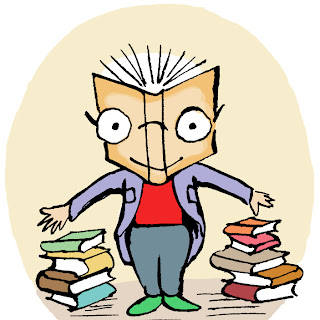EVENT REPORT: The Author/Illustrator as a Brand
You've written a book but now you're being told to develop your author brand - what's one of those, you ask? Find out more here as Jennifer Burkinshaw and Lorna Riley report back on SCBWI North West's inspiring panel event The Author/Illustrator as a Brand.
As yet unpublished YA authors Jennifer Burkinshaw (JB) and Lorna Riley (LR) recently attended the, frankly quite terrifyingly titled, The Author/Illustrator as a Brand SCBWI panel event. It was hosted by the North West region as part of the Manchester Children’s Book Festival. For those of you even too petrified to attend, we have taken some notes. We do hope you find them useful. And encouraging.
JB: Author as a brand? I should be so lucky! Promptly forgetting the topic, my reasons for booking a ticket were: to see my ex MMU colleagues, my new SCWBI pals and for the 1-2-1 afterwards.
LR: Yes, this was my first SCBWI event. I’ve been writing for years, but I’ve only just plucked up the courage to join – never quite feeling official enough. The idea of being an ‘author brand’ was a concept too far removed from my consciousness to contemplate. I was there for the 1-2-1 and to show my face and make some new SCBWI friends.
JB: During the event, thirty of us were treated to a stimulating and insightful discussion by Livi Michael, author and lecturer at MMU, agents Penny Holroyde and Sinead Heneghan and editorial consultant, Tilda Johnson.
Livi started off, exploring how there are different kinds of readers, from eclectic choosers to those who know what genres and authors they like, all of which affects how books are marketed. You’re much harder to market if you write in numerous genres.
Discussion followed on how Jacqueline Wilson created a brand for herself before brands even existed, by her dress style and her intense, personal interaction with her readers. Similarly with Julia Donaldson, who did 62 school visits a year when she was a new author, and now ‘performs’ at each reading like it’s her first.
LR: The thing that stuck with me the most from the whole panel event was this point; the more work you do putting yourself out there, the more the publisher will invest in marketing – from signs to posters to flyers. You need to get out there from day one. Make a name for yourself with your audience by meeting them face-to-face. Even David Walliams worked really hard at the beginning and put a lot into author events and competitions.
JB: Penny saw that ‘author as brand’ could be used as an excuse for the poverty of publishers’ marketing budget; writers have become responsible for their own marketing, largely through social media. However, Facebook sites were felt to be a good means of encouraging children to engage with authors; Instagram a key way of teens finding new books, and the judicious use of Twitter good for adults. Tilda said it was important to be yourself and connect with relevant people.
LR: I’m a terror for letting Facebook and Twitter eat up valuable writing time, so the thought of adding Instagram to the mix to help connect with YA readers was a bit deflating. But it was pointed out that the concept of the author as a brand in the social media age allows us to take control of our own marketing.
JB: What was really useful to those of us for whom publication and the need for a brand is still a far-off dream was the exploration of how it helps us writers of all stages to step back and have the self-awareness to consider our identity as a writer; our style and voice. Livi encouraged us to consider, ‘What do you uniquely have to offer as a writer?’ What is your unique contribution? She stressed the importance of being genuine and passionate.
LR: And for those of us that find it difficult, sharing your work with others, such as in a monthly SCBWI critique group can help us develop our self-awareness and USP. It can be your style of writing or sense of humour. It doesn’t necessarily have to be genre.
JB: In conclusion, Livi said that validation of one’s writing may or may not come - we need to own the fact that we are doing this for ourselves first and foremost.
The discussion was at least as fabulous as my initial three reasons for going. Heart-felt thanks to our two NW SCWBI co-ordinators, Catherine Whitmore and Marion Brown, who also did a stellar job of chairing the panel.
*Feature Image: The panel, expertly hosted by Marion Brown. Image Credit: Catherine Whitmore
Jennifer Burkinshaw is a graduate of the Golden Egg Academy. Her YA novel, Happiness Seekers, is currently out on submission. Twitter: @JenBurkinshaw
Lorna Riley is a pharmacist by trade and optimist by nature. She can be found on Twitter @lc_riley and blogs and vlogs with The Scribblers, at thescribblersonline.com.
**********************************************
A. M. Dassu is a member of the Words & Pictures editorial team, she manages the Events team and SCBWI BI events coverage.
Contact her at events@britishscbwi.org












Another great W&P write up and another event that I would've benefitted from! Thanks all.
ReplyDelete